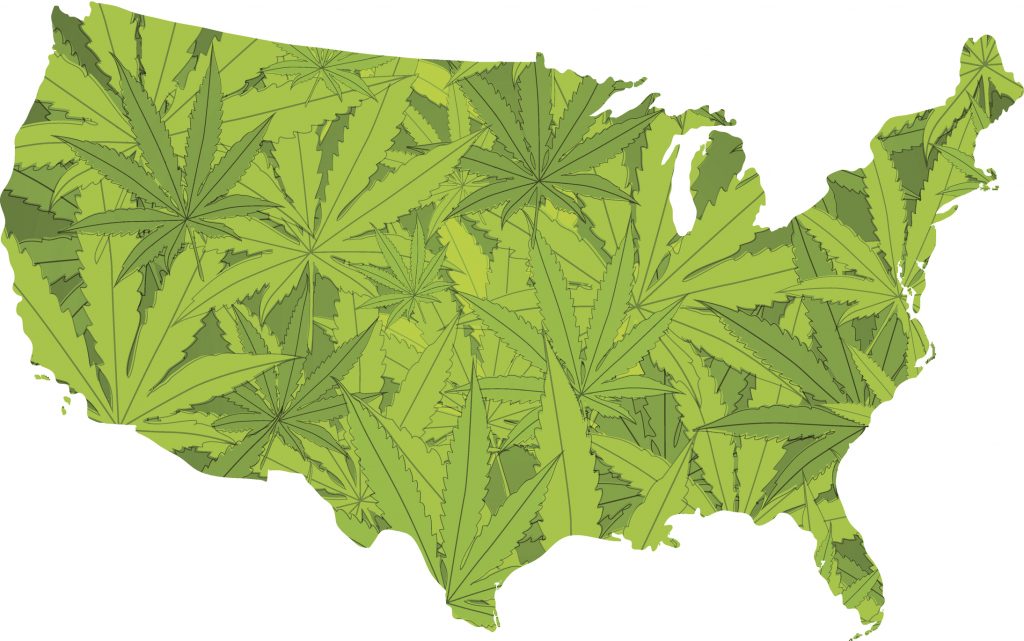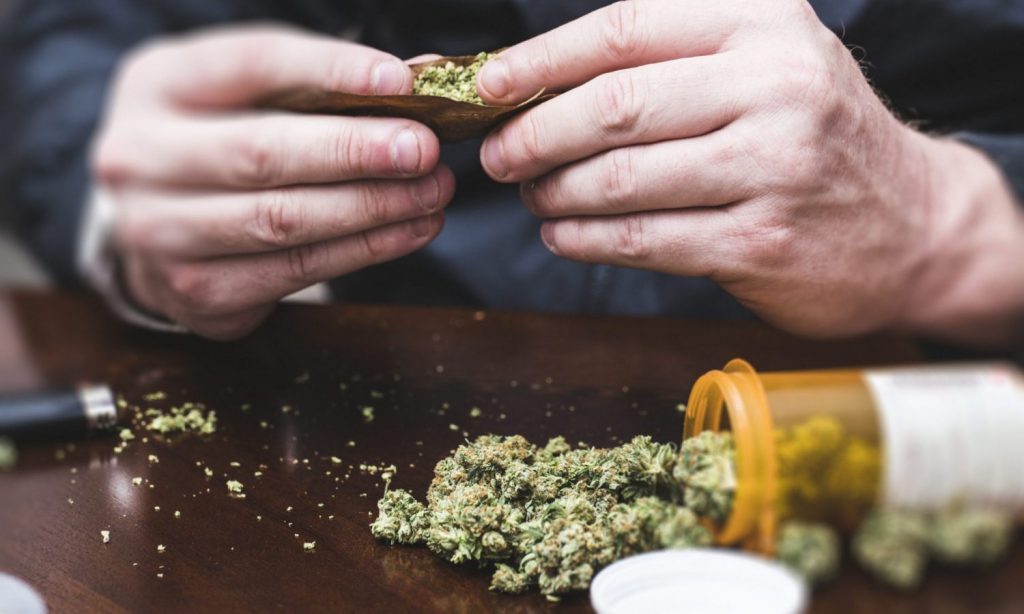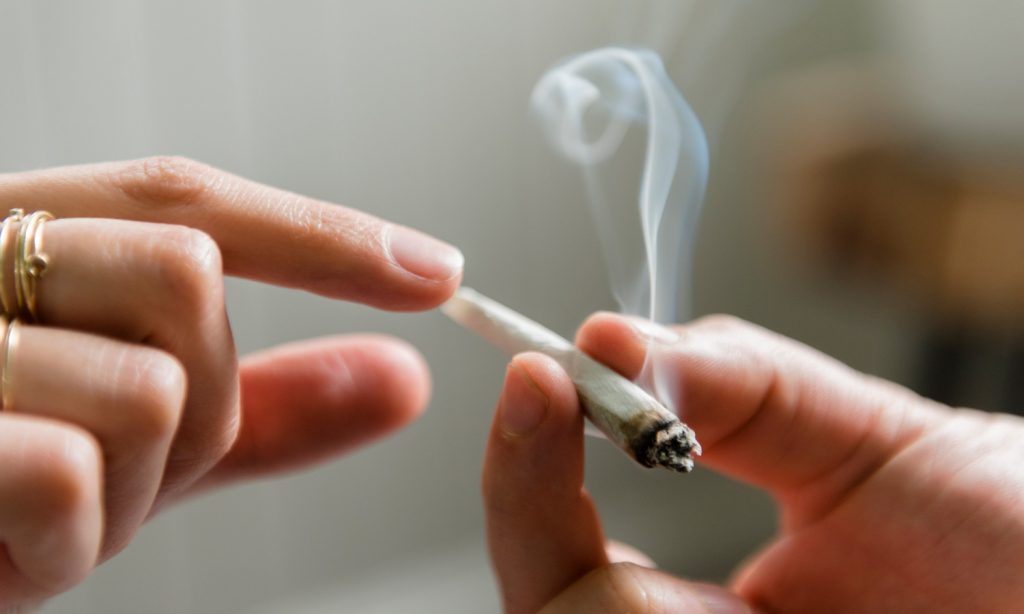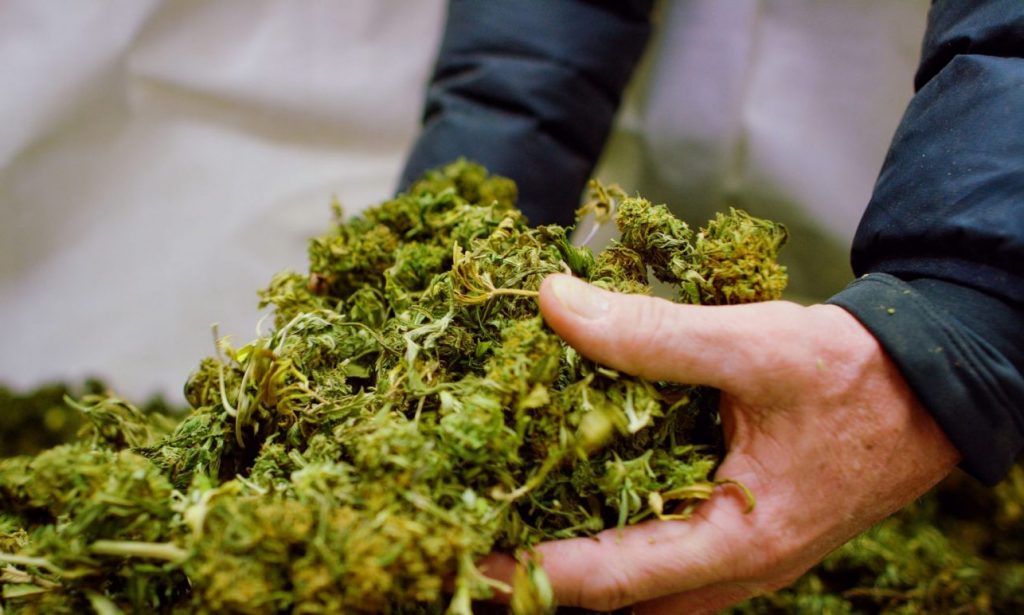
What’s up with the licensing of the cannabis industry in the US?
By Tia Moskalenko
The United States offers a unique perspective on the legality of cannabis. It is not yet legal at the federal level, and yet any state is allowed to legalize its use and production at any level it deems appropriate. This leads to a lot of confusion, gray areas, unequal enforcement of laws, and other problems.
However, a faint light can be seen at the end of the tunnel. Public opinion has quickly shifted towards legalizing cannabis and hemp. And while lawmakers tend to be more conservative on this issue, they age in power.
Photo by Anton Petrus / Getty Images
In this article, we’re going to dig deep into the licensing and legality of cannabis legislation. We share what is happening from state to state, what the problems are and how they are being overcome.
Licensing of cannabis in the United States
Because there is no comprehensive law governing the sale of cannabis, licensing procedures vary from state to state. Each state has its own laws that allow the production and use of cannabis and hemp products to varying degrees – some have opened the door to recreational THC consumption, while others allow medicinal uses. Some allow CBD but not THC. Some allow one THC analog, but no other.
Because of this legal complexity, there is no official guide for government licensing agencies … all you need to do is do the research for yourself. However, knowing this information is extremely important, precisely for the reason that it is difficult to find – the complexity behind licensing laws.
When buying a CBD or THC product from one source, you, the consumer, want to know that what you are doing is legitimate where you are. And if you are trying to start a cannabis business, this is even more important. What can you grow and how much? Can it be transported across state borders?
There are licenses that can be obtained for both medicinal and recreational cannabis. You need to know where you want to manufacture and sell so you know what laws may apply to your business. Some states currently do not even offer the option to apply for licenses.
A state-by-state guide
There are fifty states to overcome, so we’ll carefully group them based on their current legal status. We’ll go into a little more detail about the states that have more problems with the licensing process.
 Photo by traffic_analyzer / Getty Images
Photo by traffic_analyzer / Getty Images
The fully legal states
Cannabis in all forms for both medicinal and recreational uses is completely legal in the following states.
Alaska – Apply for a marijuana establishment license online
Arizona – Arizona DHS regularly accepts applications. Must be set up as a medical pharmacy
California – Apply for one of three state licensing agencies based on your type (grower, retailer, etc).
Colorado – You can apply for either a medical or a recreational license
Connecticut – State occasionally licenses applicants for medical marijuana business
Illinois
Maine
Massachusetts – You can apply through the Cannabis Control Commission
Montana
Nevada
New Jersey * – currently unlicensed
New Mexico – Applications are not currently being accepted
New York – currently not accepting applications
Oregon licenses can be obtained through the Oregon Liquor Control Commission
Vermont – does not currently issue licenses
Washington – currently not accepting applications.
Even in fully legal states, licensing laws vary. In fact, in New Jersey a person is not allowed to have an amount of any growing seed or plant unless they are licensed as a breeder. Recreational marijuana was legalized in Arizona in 2020, but is currently only approved in state medical marijuana clinics.
Colorado, on the other hand, has a state website that links to a huge list of licensed operators, manufacturers, cultivators, carriers, and other industry players. (3) Even within the completely legal areas, there are some fuzzy lines.
 Photo by LPETET / Getty Images
Photo by LPETET / Getty Images
Medical legal marijuana states
Here is a list of states that have legalized medical marijuana but continue to be prosecuted for recreational use:
Alabama
Arkansas – apply through the Arkansas Medical Marijana Commission
Delaware – extremely restricted
Florida – does not currently accept licenses to manufacture medical marijuana
Louisiana
Maryland
Maine – rarely awarded, but you can apply to start a marijuana social club
Michigan – The Department of Licensing and Regulatory Affairs is currently accepting applicants for growers, carriers, processors, and safety compliance facilities.
Oklahoma
Pennsylvania
South Dakota
Utah
West Virginia
There are also different standards of law enforcement within these states … While medical cannabis is legal, recreational use ranges from prison terms to offenses / fines. What also changes within these parameters is how much and what type of product may be transported across national borders.
In the case of Alabama, for example, it is unclear. There is no set law one way or another, and so it is dangerous to mess with. Other states such as Arkansas only allow THC to be transported (but without specifying an amount) for medical purposes only. Also in Alabama only licensed growers are allowed to grow plants, while in other states like Florida an individual can grow cannabis for medicinal purposes.
 Photo by Jamie Grill / Getty Images
Photo by Jamie Grill / Getty Images
The illegal states
There is little doubt about legality or licensing in the following states; all cannabis is illegal.
Georgia
Idaho *
Indiana
Iowa
Kansas
Kentucky
Mississippi
Nebraska
North Carolina
South carolina
Tennessee
Texas
Wisconsin
Wyoming
And yet, even in these states where cannabis products are strictly illegal, there are still some legal gray areas.
RELATED: Why The Illegal Classification Of Marijuana Is Based On Politics, Not Science
Idaho is a state with very little leeway. Possession of cannabis plants is a criminal offense, and even CBD oil cannot contain more than 0.1% THC. While marijuana use is generally illegal in Georgia, certain cities have decriminalized it – Atlanta, Clarkson, Forest Park, Savannah, South Fulton, Statesboro, and some unincorporated counties.
Ironically, hemp is big business in Kentucky, a state where both medical and recreational marijuana is illegal. Kentucky is a huge supplier of industrial hemp for CBD extraction (CBD is legal in Kentucky). Their law does not contain a clear ban on the transport of cannabis or hemp across state borders.
 Photo by Hoptocopter / Getty Images
Photo by Hoptocopter / Getty Images
THC gray area states
Finally, there are some states that can best be described as “gray area” states. These states have hard-to-analyze laws that are unclear at best.
Delaware
Hawaii – Unclear whether the state will issue further licenses
Louisiana * –limited
Maryland
Mississippi *
Minnesota – no licenses currently available
Missouri
Nebraska *
New Hampshire – currently not issuing licenses
Ohio – Due to the recent legalization of marijuana, demand has increased and additional licenses are currently available.
Rhode Island – accepts applications only during open periods.
North Carolina
Tennessee
Texas *
Wisconsin *
Some of these states are repeats as cannabis is either outright illegal or only medically legal. They are given a special category, however, as the laws regarding use, possession, or sale can be very whimsical.
RELATED: 4 States That Might Legalize Recreational Cannabis In 2022
Some of these states are more likely to work towards leniency. This includes states like New Hampshire. They allow medical marijuana and have decriminalized recreational marijuana, but only up to 0.75 oz. You can also grow plants, but only for medicinal purposes. Nebraska has also decriminalized marijuana use, but only for the first offense.
In Louisiana, recreational marijuana is decriminalized up to 14 grams and medical marijuana is legal, but growing your own marijuana, even for medicinal purposes, is illegal.
The bottom line
What does all of this mean for the licensing process for the cannabis industry? In essence, it is time to watch out for changes in state law. Due to the popularity of legalization, many states with restricted sales or unclear laws may change in the near future.
Look at the Ohio example. Having recently opened up to medical marijuana, they are currently accepting far more applications than many states that have passed laws in favor of marijuana use. States that are closed to licenses can suddenly be wide open to business if recreational use takes hold in a previously illegal area.
Like all good entrepreneurs, it’s best to keep your finger on the pulse of trends. This can be especially wise in states where they seem on the verge of legalization (e.g. legal for medical purposes, decriminalized for recreational purposes). Opportunities can arise in these places.
This article originally appeared on Benzinga and was republished with permission.

Post a comment: